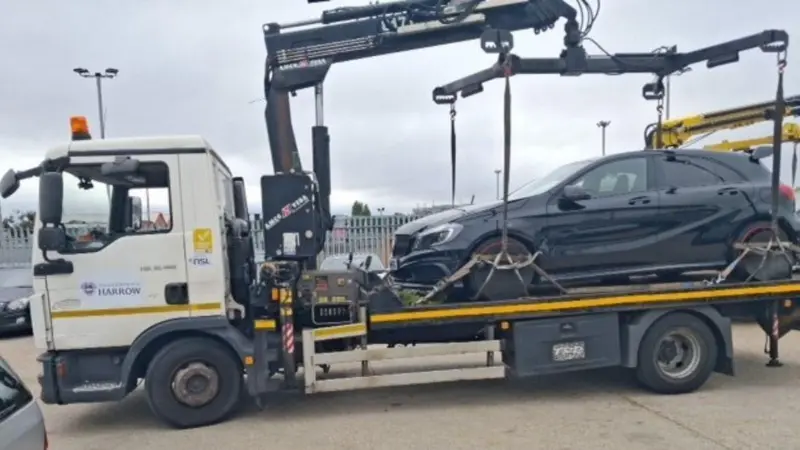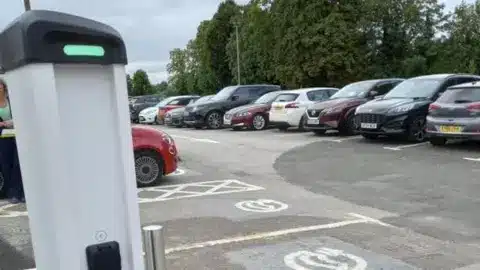Harrow Council Cracks Down on Illegal Parking and Persistent Fine Dodgers


Harrow Council has launched a tough new towing initiative aimed at tackling illegal parking and clamping down on drivers who repeatedly ignore penalty fines. The north-west London authority says the policy, introduced in October 2025, is already delivering positive results — making local streets cleaner, safer, and more accessible for residents.
Since the scheme’s launch on 7 October, a total of 36 vehicles have been impounded at the council’s new secure facility, with 23 drivers having already paid their fines in full to recover their vehicles.
The move marks a significant escalation in Harrow’s efforts to deter anti-social and inconsiderate parking, a longstanding concern among local residents and businesses.
Why the Towing Scheme Was Introduced
The new towing policy targets motorists who persistently break parking rules or fail to pay Penalty Charge Notices (PCNs). These vehicles often “slip through the cracks” of traditional enforcement systems, according to the council.
Harrow Council says that by physically removing repeat offenders’ vehicles, it can ensure compliance, reduce street clutter, and discourage others from parking illegally. The scheme also supports broader aims to improve road safety, ease traffic congestion, and create a more visually appealing and navigable environment.
Councillor David Ashton, Cabinet Member for Finance and Highways, said the new approach reflects the frustration of local residents:
“Like our residents, we’ve had enough of inconsiderate parking. It’s unfair for others who need a space, and makes our streets unsafe and untidy. From now on, if you ignore a PCN, you could say goodbye to your vehicle.”
How the Scheme Works
Under the new rules, drivers whose cars are towed must pay a £280 release fee in addition to their original PCN. Failure to pay within a reasonable timeframe can lead to parking permit suspension and further enforcement action.
In addition, the council applies a daily storage charge of £55 for any car left unclaimed for more than 24 hours after being towed. Owners are also required to provide their personal details, allowing Harrow Council to investigate any outstanding fines or previous offences linked to their vehicle.
A standard Penalty Charge Notice (PCN) in Harrow starts at £90, though this can rise to £160 depending on the severity of the offence. If the fine is paid promptly — within 14 or 21 days — drivers are typically eligible for a 50% discount.
Tackling the Problem of Fine Dodgers
The council’s new towing policy is specifically designed to tackle persistent fine dodgers — motorists who rack up multiple PCNs but never pay them. Such cases can cause enforcement backlogs and create a perception that the system is ineffective.
By impounding vehicles until all charges are cleared, Harrow Council hopes to send a clear message: ignoring fines is no longer an option.
Officials argue that the policy will also help reduce administrative costs by ensuring unpaid fines are collected more efficiently.
Impact on Road Safety and Community Cleanliness
One of the scheme’s key aims is to make Harrow’s streets cleaner, safer, and easier to navigate. Illegally parked cars can obstruct pavements, block emergency routes, and make visibility worse for both drivers and pedestrians.
The council says the removal of such vehicles improves safety around schools, residential estates, and high-traffic commercial zones. It also contributes to better access for delivery vehicles, buses, and emergency services — areas where improper parking can have serious consequences.
Local residents have expressed support for the tougher measures, describing them as long overdue. Many have complained that repeat offenders often park with impunity, creating hazards and frustrations for others.
Balancing Fairness and Enforcement
While the towing scheme has received broad backing, Harrow Council has stressed that enforcement officers are expected to act fairly and in line with regulations.
The authority emphasises that towing is being used only in cases of persistent or serious non-compliance, not as a first response to minor infractions. Drivers will continue to receive warnings and opportunities to pay PCNs before further action is taken.
The council also encourages residents to use its online parking services to manage permits, pay fines, and report illegal parking in their neighbourhoods.
A Message of Accountability
Cllr Ashton underlined the principle behind the initiative: personal responsibility.
“Every driver who parks illegally is choosing to disregard the rules that exist to keep everyone safe. We’re not interested in catching people out — we just want a fair system where everyone follows the same standards.”
The council’s stance reflects a wider trend among London boroughs towards stricter parking enforcement and smarter traffic management. By combining technology, data sharing, and physical enforcement, local authorities are finding new ways to manage limited road space and encourage responsible driving behaviour.
Future of Parking Enforcement in Harrow
With early results showing success, Harrow Council plans to expand the towing initiative and integrate it with its digital enforcement systems. This could include the use of Automatic Number Plate Recognition (ANPR) and data sharing with other London boroughs to identify vehicles with multiple outstanding fines.
Officials believe the approach will help ensure that law-abiding residents and visitors are not penalised by the actions of a few.
The council has also pledged to reinvest a portion of the recovered fines into road safety projects, public transport improvements, and community infrastructure, ensuring that enforcement directly benefits the local area.
Harrow’s new towing scheme sends a powerful message: illegal parking and unpaid fines will no longer be tolerated.
By combining robust enforcement with fair procedures, the council aims to create a safer, tidier, and more respectful environment for everyone who lives, works, or travels through the borough.
For drivers, the message is clear — pay your fines, follow the rules, and avoid finding your vehicle in the pound.
Posted on 28 October 2025






